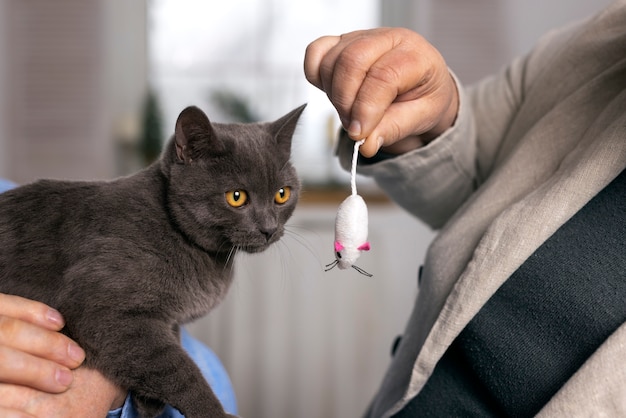Parasite Prevention Strategies for Buford Pets in Summer

Parasite Prevention Strategies for Buford Pets in Summer
As summer arrives in Buford, pet owners are often faced with a new set of challenges when it comes to keeping their furry family members healthy and comfortable. The warm, humid climate in our region creates ideal conditions for fleas, ticks, and other parasites to thrive. If you have ever wondered how to best protect your dog or cat from these persistent pests, you are not alone. At Express Vets Buford, located at 4108 Hamilton Mill Road, Suite 310, Buford, GA 30519, our veterinary team is committed to helping pet owners in Buford and surrounding communities understand and implement effective parasite prevention for pets. This blog will guide you through recognizing parasite problems, understanding why summer makes pets more vulnerable, exploring the most reliable flea and tick control strategies, and learning how to maintain year-round protection for your pet’s health.
Whether you are seeking advice for routine parasite prevention or need support with a current infestation, our veterinarians are here to guide you. We will also discuss the importance of scheduling regular checkups and proactive care so you can enjoy the outdoors with your pet, worry-free. If you are searching for a "vet near me" who offers comprehensive parasite prevention and flea and tick control in Buford, you are in the right place. For more information on our approach, you can read about our Parasite Prevention and Control services for pet health and protection against fleas, ticks, and other parasites.
Recognizing Parasite Problems: How to Spot Symptoms in Your Pet
Noticing the early signs of parasite infestations is crucial for timely intervention. Fleas, ticks, and other parasites can cause discomfort, irritation, and even serious illness in both dogs and cats. Key symptoms include excessive scratching or biting at the skin, visible redness or sores, hair loss in patches, or the presence of flea dirt, which appears as tiny black specks on your pet’s fur or bedding. Some pets might show signs of lethargy, develop scabs, or experience unexplained weight loss.
In the case of ticks, you may find small, round bumps attached to your pet’s skin, often around the ears, neck, or between the toes. Additionally, heavy infestations can lead to pale gums, which may signal anemia, especially in kittens and puppies. If you notice your pet shaking their head more than usual, it could indicate ear mite activity. Pets who spend time outdoors, especially during the summer months in Buford, are at higher risk, making regular checks an important part of parasite prevention for pets.
Cats may be more subtle in their symptoms, often grooming excessively, hiding, or showing changes in behavior when infested. Spotting these signs early increases the effectiveness of flea and tick control and helps prevent more serious health issues from developing. If you are unsure whether your pet is dealing with parasites, scheduling a visit with your veterinarian in Buford can provide peace of mind and a clear plan for next steps.
Why Summer Puts Buford Pets at Higher Risk for Parasites
Understanding why your pet is more vulnerable during the summer months begins with knowing how parasites thrive. Fleas and ticks flourish in warm, humid environments, quickly multiplying in grassy yards, wooded trails, and even shaded corners of your home. Buford’s climate, with its extended periods of heat and moisture, provides the perfect breeding ground for these pests.
Outdoor adventures increase your pet’s exposure risk. Simply walking through tall grass or wooded areas can be enough for a tick to latch onto your dog or cat. Fleas can jump considerable distances and often hitch a ride indoors on shoes, clothing, or other pets, leading to household infestations. Even pets who spend most of their time inside are not immune, as fleas and ticks can make their way indoors and find new hosts.
Other contributing factors include local wildlife, such as squirrels or stray animals, which can bring parasites into neighborhoods. The longer daylight hours also mean pets and their families are outside more often, increasing the risk of contact. Recognizing that summer in Buford is prime time for parasites highlights the importance of seeking reliable flea and tick control in Buford and nearby areas.
Veterinary Treatment Options: How Professional Parasite Prevention Works
When it comes to flea and tick control for pets, professional veterinary guidance is your best defense. At Express Vets Buford, our veterinarians offer a variety of safe, effective parasite prevention strategies tailored to your pet’s unique needs and lifestyle. Treatment options involve topical medications, oral preventives, collars, and in some cases, injectable solutions that provide long-lasting protection.
Your veterinarian will consider factors such as your pet’s age, weight, health status, and activity level when recommending a product. For example, topical solutions are often chosen for pets who swim frequently or are bathed regularly, while oral medications might be ideal for households with small children where residue on fur is a concern. Year-round parasite prevention is strongly advised, as skipping doses or letting protection lapse during cooler months can allow parasites to gain a foothold.
In cases of existing infestations, the treatment approach may involve medicated baths, environmental control measures, and follow-up examinations to ensure all pests are eradicated. Addressing both the pet and the environment is essential, as flea eggs and larvae can survive in carpets, bedding, and furniture. Our Parasite Prevention and Control services provide comprehensive support, from diagnosis to ongoing management, ensuring your pet receives the highest standard of care in Buford.
Home Prevention Tips: Keeping Your Pet Protected Year-Round
While professional care is essential, there are many steps you can take at home to support parasite prevention for pets in Buford. Consistent use of veterinarian-recommended preventives is the foundation, but additional measures help maximize protection. Regularly washing your pet’s bedding, vacuuming carpets and furniture, and keeping your yard trimmed can reduce the places where fleas and ticks hide.
Inspect your pet after every outdoor adventure, paying close attention to areas where parasites commonly attach, such as around the ears, neck, and between toes. Promptly removing any ticks you find, using proper technique, helps reduce disease risk. Maintaining a clean environment indoors and out makes it harder for parasites to establish themselves.
Limiting exposure during peak parasite activity times, such as early morning and dusk, can also be helpful, especially in wooded or grassy areas around Buford. If your pet is particularly sensitive or has a history of allergic reactions to bites, discussing allergy testing and specialty diets with your veterinarian can provide additional support. For those searching for "flea and tick control near me" or "pet parasite prevention near me," partnering with your local veterinary team ensures you are using the safest, most effective strategies for your pet’s specific needs.
When to Schedule a Veterinary Visit for Parasite Concerns
Knowing when to bring your pet to the veterinarian is a critical part of responsible parasite prevention. If you notice persistent scratching, visible parasites, skin sores that do not heal, unexplained weight loss, or behavioral changes, it is time to schedule an appointment. More urgent situations include signs of anemia, such as pale gums, extreme lethargy, or heavy infestations that do not improve with over-the-counter treatments.
Annual or bi-annual wellness exams are highly recommended as part of a comprehensive preventive care plan, especially in high-risk areas like Buford. These visits allow your veterinarian to assess overall health, update parasite prevention protocols, and catch early signs of infestation before they become severe. Your veterinarian can also provide guidance on environmental management and recommend the most current products for flea and tick control in Buford.
For ongoing support, our Parasite Prevention and Control services are designed to help pet owners in Buford and surrounding communities stay proactive and confident in their approach to parasite protection. If you are looking for a "veterinarian near me" who prioritizes preventive care, Express Vets Buford is here for you.
Take Action: Protect Your Pet with Trusted Parasite Prevention in Buford
Summer in Buford brings so many opportunities for fun and adventure with your pets, but it also increases the risk of fleas, ticks, and other parasites. By staying alert to early warning signs, understanding the influence of our local climate, choosing professional parasite prevention, and maintaining vigilant home care, you can safeguard your pet’s health throughout the season and beyond.
If you are ready to take the next step, our veterinary team at Express Vets Buford invites you to schedule an appointment for personalized advice and effective flea and tick control in Buford. We are dedicated to building lasting relationships with pet owners in Buford and surrounding communities, ensuring every pet receives the preventive care they deserve. For more information or to book your visit, call us at (470) 326-5220 or stop by our convenient location at 4108 Hamilton Mill Road, Suite 310, Buford, GA 30519.
For year-round parasite prevention for pets and the peace of mind that comes with having the "best vet near me," trust Express Vets Buford to keep your companions safe, comfortable, and thriving. Learn more about our Parasite Prevention and Control services for pet health and protection against fleas, ticks, and other parasites and let us help you create a customized parasite prevention plan for your dog or cat. Your pet’s health and happiness are always our top priorities.
Disclaimer: This blog is intended for educational purposes only and does not replace professional veterinary care. If you have concerns about your pet’s health or suspect a parasite infestation, please consult your veterinarian promptly. For additional resources on parasite prevention and local parasite risks, visit reputable sources such as the Companion Animal Parasite Council or Centers for Disease Control and Prevention.



















